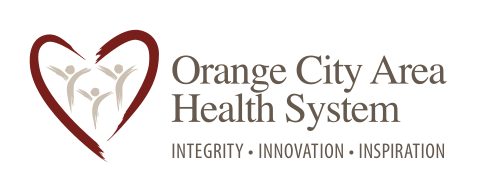Recognizing and addressing touch deprivation
– by Alan D. Wolfelt, PH.D.
My first grandchild was born in early 2020, right as this pandemic was gaining momentum. I got a social-distancing, several-feet away peek at him early on, but then we were kept apart for three long months out of an abundance of caution so that his mom (my daughter), 60-something me, and the healthy-but-vulnerable newborn all stayed safe. As the shelter- in-place weeks slogged by, I found myself becoming more and more impatient to hold the little guy.
Like so many people the world over, I was becoming touch deprived. Even those who don’t consider themselves huggy, touchy people are now expressing awareness that they need the physical proximity and touch of other human beings to feel well, especially during times of uncertainty and anxiety. You may recognize this in yourself and your loved ones, and you may see this heightened need in the grieving people you are now serving.
I hope that this article helps you understand the role of touch in helping you, your family, your colleagues and the grieving people you serve feel supported during stressful times. I’ve also provided some tips for feeding touch starvation, which you can try yourself, as well as suggest to friends and family and to co-workers and mourners, when appropriate.
The power of touch
As a longtime grief counselor and educator, I know touch helps us feel loved and empathized with. After a significant loss, grieving people who are hugged, touched, and visited often report feeling comforted and supported. They also experience that important sense of connection that helps them continue to feel meaning and purpose in life.
Because touch is physical, it has bodily effects. When we are touched in comforting ways, our brains are flooded with dopamine, serotonin and oxytocin. These feel-good hormones help regulate our mood and make us feel calmer and happier. When we aren’t touched, on the other hand, our brains suffer from the lack of these chemicals.
We may feel depressed, anxious and stressed. We might also have more trouble sleeping. In addition, touch stimulates the vagus nerve, which branches throughout the entire body. Its role is to calm the nervous system, which in turn helps boost our immune system and can lower both our blood pressure and heart rate. continued next page …
During the pandemic, if you or someone you know has been feeling depressed, anxious, or stressed; has been having sleep issues; or has felt unwell physically, lack of physical touch may be one of the culprits.
Online culture and social distancing
Of course, even before the pandemic, our culture was becoming more and more socially distanced. Instead of face-to-face contact, we increasingly rely on technology as a main form of interface. Texting, emailing and social media have become the primary ways of “keeping in touch,” even though, ironically, they involve no touching at all.
Social distancing has only served to heighten our reliance on technology. We are grateful, of course, for the electronic means same time, we are realizing their limitations. Our high-tech, low-touch lifestyles aren’t enough. We need and crave physical human contact. We are skin hungry. We are eye contact empty. We are touch starved.
Tips for feeding touch starvation
▶ Tell family and friends about your need for touch. If you’re sheltering in place with others, talk to them about touch starvation and how you’re feeling. Maybe your roommates are craving touch as well. Depending on your relationships, hugs, shoulder rubs, scalp massages, back scratches, foot rubs and handholding are possible outlets.
▶ If you’ve been isolated and need a hug, meet outdoors with loved ones and, masks on, share some safe embraces. A 20-second hug is the threshold for alleviating stress and helping you feel calm and safe. Even without hugs, simply gathering outdoors to chat and have distanced face-to-face eye contact for an hour or two can make a big difference.
▶ If you can’t be near your loved ones right now, use video calls as the next best thing. Faces and voices help us feel close and “read” one other. On the calls, tell people how much you care about and miss them. You’ll find that speaking your love out loud releases the same feel-good chemicals that touch does.
▶ Cuddle with your pets.
▶ When it’s safe to do so again, consider making an appointment for a massage, manicure, haircut or healing touch or reiki session.
▶ Massage also releases feel-good chemicals. Give yourself an arm rub by rolling a tennis ball up and down a few times daily or use a foam roller for a back rub.
▶ Try using a weighted blanket when you watch television or sleep. The 15- to 25-pound blankets press down on the skin, which triggers vagus nerve activity. Choose one that’s about 10% of your body weight.
▶ Practice yoga. Yoga poses place pressure on lots of different parts of your body, essentially “touching” you all over.
You’ll be glad to know that I finally got to hold my grandbaby recently. He’s already a grinning, wriggly 3-month-old, and boy, did it feel amazing to have him in my arms. With my new appreciation for touch starvation, I’m planning on lots of hugs and kisses in the months and years to come.
Founder and director of the Center for Loss and Life Transition, Dr. Alan Wolfelt has been recognized as one of North America’s leading death educators and grief counselors. His books have sold more than a million copies worldwide and have been translated into many languages. Wolfelt speaks on grief-related topics, offers training for caregivers and has written many bestselling books and other resources on grief for both caregivers and grieving people. Learn more at centerforloss.com.

